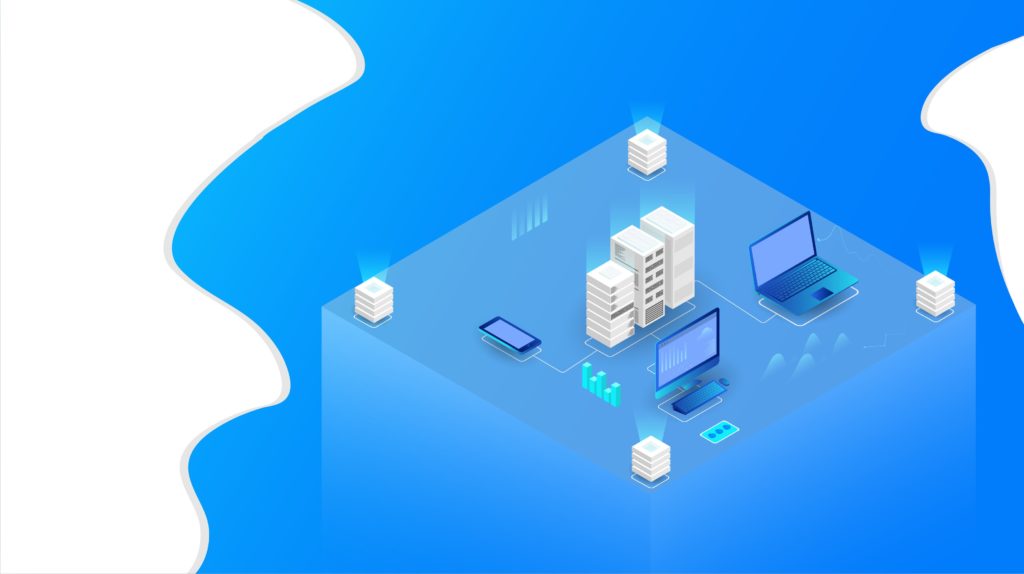Like it or not, our daily lives are generally consumed by bits of digital information. Almost everything about us is captured in 1s and 0s that arrange in various combinations of eight to form bytes, and then kilobytes, megabytes, gigabytes and so on. These numbers, collectively termed data, are used to identify our bank accounts, arrange our schedules, send text and email messages, and capture digital images and video clips that may be shared worldwide in a matter of milliseconds.
In addition to data created as a matter of course in day-to-day life, businesses across the globe are busy creating and using data for everything from managing human resources to determining profit margins. Every business, large or small, needs a way to identify employees, track inventory and project sales, which means they also need a way to catalog these pieces of information. Organizing and harnessing this data for more effective utilization will become not only a powerful multiplier for business operations, but a necessity as well.
So what is data management? Data management is collecting, entering, storing, organizing, protecting and processing data to help people, organizations and connected entities optimize the use of data. Data management through the lens of asset management is the means to improve asset visibility, track inventory, simplify processes/processing and visually interpret data for better decision making. An example of data points that most businesses collect are customer names, addresses, phone numbers, emails and dates of purchase.
Simple data such as this can be used for:
- Ad targeting using state, city, ZIP code or phone area code
- Anniversary specials to customers at the 1-year, 5-year, or 10-year marks
- Monthly ad campaigns to email lists
- Personalized campaigns that add customer names
Now, imagine if you could integrate your sales information with the basic customer data. This would enable you to increase your ad campaign capability and:
- Target customers that purchase frequently
- Target customers that haven’t purchased in six months or a year, etc.
- Target customers who spend over a certain dollar amount
- Target customers who purchase a certain product/service you provide
Adding the tracking of an inventory data category would allow you to:
- Identify aging inventory and offer targeted marketing discounts to previous buyers
- Identify seasonal surges to increase / decrease inventory and manage storage
- Identify customers that only purchase specific inventory during seasonal increase
- Identify product bundling discounts
The possibilities are endless, and exceedingly powerful in helping businesses grow.
The real power of data management comes in the way it can be used in a mutually beneficial asset management platform to create synergy between our businesses and other organizations such as educational institutions, insurance companies and even government entities.
Allow me to illustrate one way iResQ is working on creating a single-source gateway that allows all interested parties to have access to relevant, related asset information to quickly query information for each partner’s specific needs.
iResQ, in partnership with MAKE Digital, has undertaken a very deliberate process to create a device management system that will enable our customers to manage their ever-growing stores of data utilizing three distinct tiers.
Tier 1 (core) is essential data that creates commonality between all organizations (serial number, school name, etc.). Tier 2 is data that can be associated with Tier 1, but not critical for operations (school POC, insurance number, etc.). Tier 3 is data that independently matters to each organization but will not be accessed by other external organizations (parental information, insurance reference number, etc.).
While most partner organization data may not be applicable to our business directly, our vision going into this process is that, if we are able to create a means by which our partners can manage their own information, we can work directly with them to more easily access the 1s and 0s that do overlap.
Device management is an essential step in the process uncovering important insights that will add value to your customers, improve operations and increase your bottom line. Investing in a mutually supportive device management platform will enable people from multiple organizations to find and access trusted data from a single collaboration space. We are excited for the future!
 Nick Crosby is the owner/CEO of iResQ, an electronic device repair services company located in Olathe, Kansas. The business operates on six core values: honesty, reliability, efficiency, service to others, compassion and collaboration. Learn more about iResQ or contact Nick at nick@iResQ.com or (913) 390-1030, ext. 7104.
Nick Crosby is the owner/CEO of iResQ, an electronic device repair services company located in Olathe, Kansas. The business operates on six core values: honesty, reliability, efficiency, service to others, compassion and collaboration. Learn more about iResQ or contact Nick at nick@iResQ.com or (913) 390-1030, ext. 7104.

